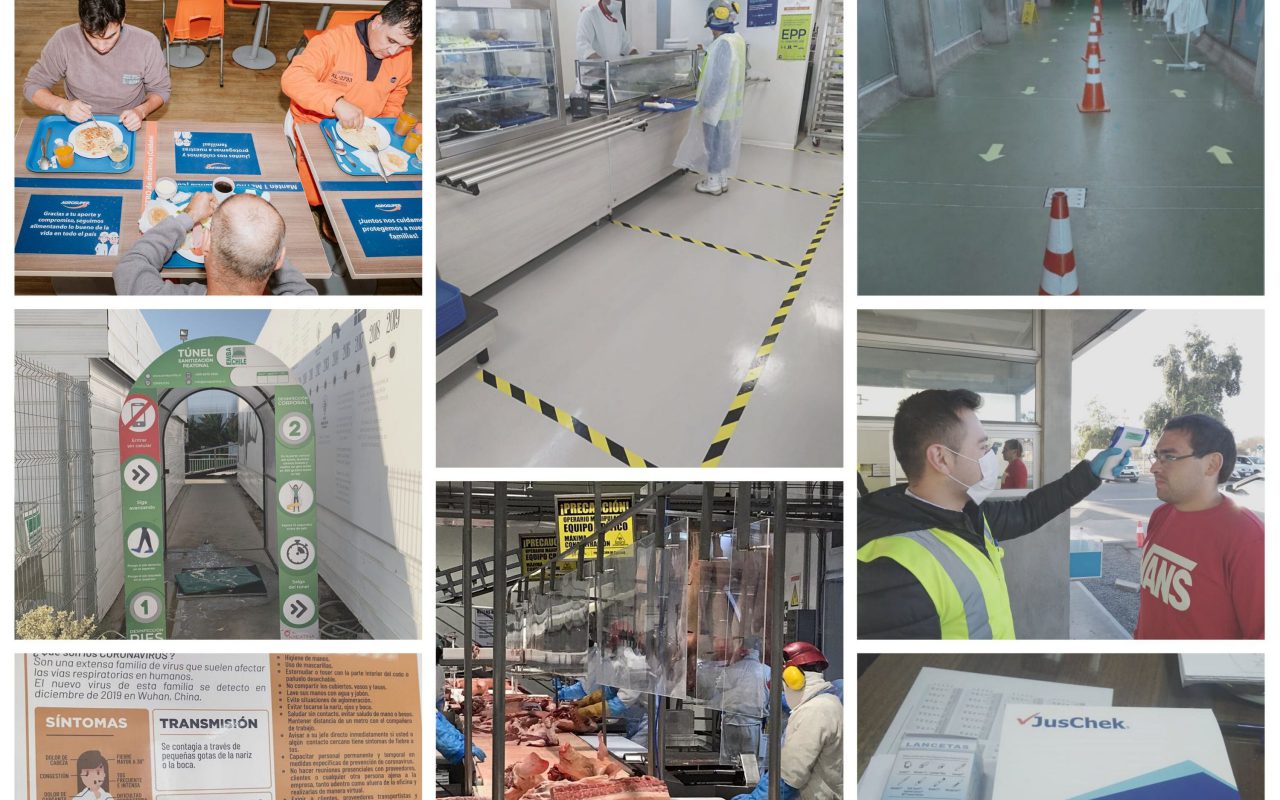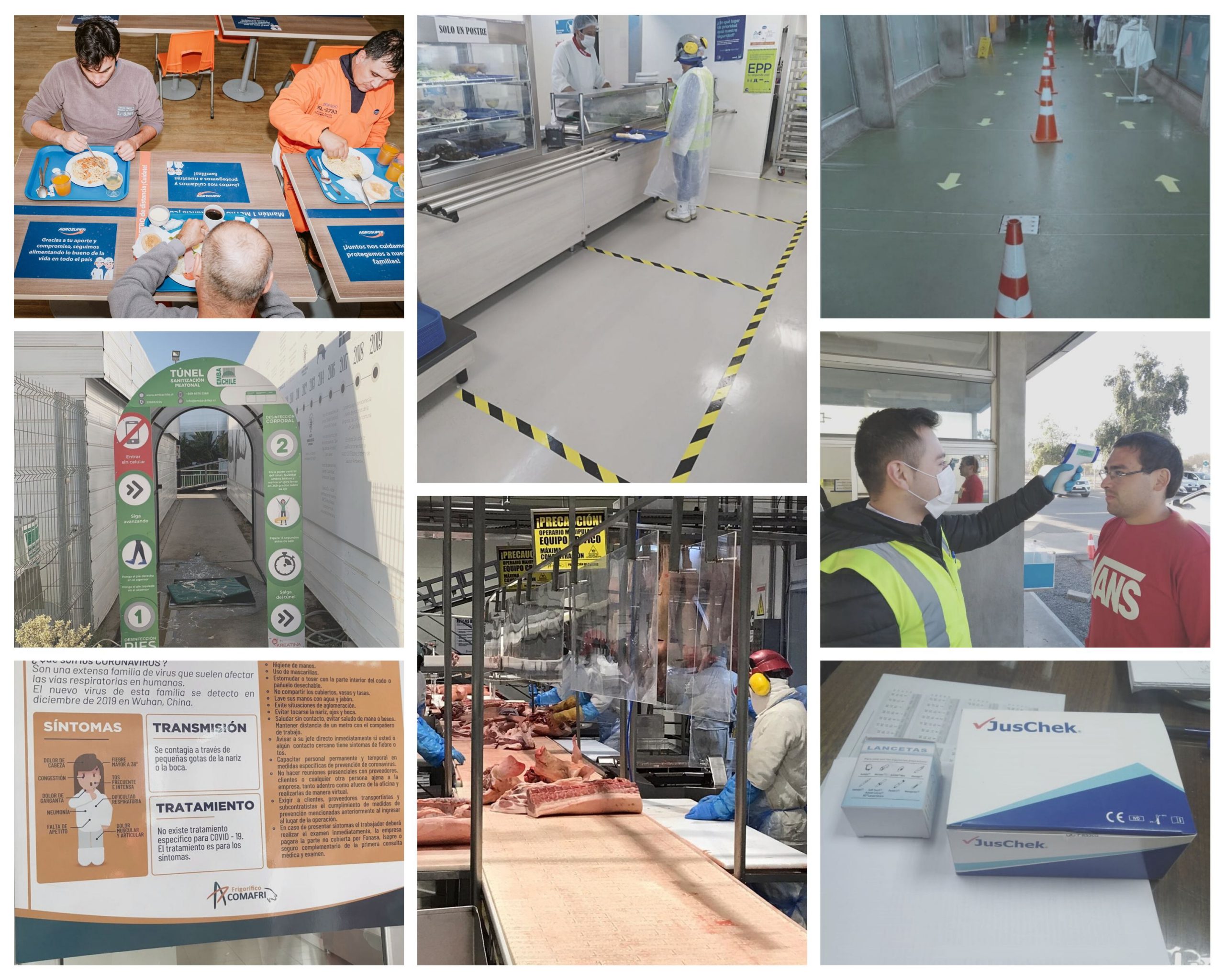
Pork industry strengthens its commitment to confront COVID-19 and ensure supply
The current health crisis has shaken the lives of citizens and the way work and private life are organized. Currently, millions of people depend on the continuity of operations of various industries to ensure supply. In Chile, while adopting measures to stop the spread of the pandemic, strategies are also being prepared by all sectors […]

The current health crisis has shaken the lives of citizens and the way work and private life are organized. Currently, millions of people depend on the continuity of operations of various industries to ensure supply. In Chile, while adopting measures to stop the spread of the pandemic, strategies are also being prepared by all sectors to minimize the potential impacts on the supply of basic products.
One of these basic products is pork. This industry is well-known for always complying with the high health and food safety standards of the most developed countries, given that the majority of production is exported to the most demanding markets around the world. Due to the contingency, the industry has taken additional measures to further protect the health of all associates of different companies while maintaining the continuity of operations, and thus ensuring product supply to domestic and international markets.
Antonio Walker, the Chilean Minister of Agriculture, has called on people to remain calm and stressed that the food supply is fully ensured. In turn, Juan Carlos Domínguez, President of ChileCarne, the Chilean Meat Exporters’ Association, highlights that: “The distribution chain continues to work, ports are still open, and highways are clear for food to reach production and distribution centers, and thus be able to supply pork throughout Chile and to our main destination markets: Japan, South Korea, and China.”
The volume of Chilean pork exports has increased in recent years. The country has a privileged health condition and a consolidated exporting strategy. In this regard, Juan Carlos Domínguez points out: “As a result of the economic contraction generated by COVID-19 worldwide, it is expected for the protein market to be affected. However, pork is considered part of the basic food basket, so demand for pork should not be affected as much as other foods. The main export markets for Chilean pork are Japan, South Korea and China, destinations where we have seen a change in sales channels for meat products, with a considerable increase in e-commerce and online sales over the food service channel, which implies the way products are being marketed has been adapted.”
To guarantee the supply, the Chilean pork industry is making significant efforts to ensure the provision of the product chain, while taking care of the health and safety of its personnel and adopting preventive measures in production plants and farms to avoid the entry and/or spread of COVID-19. They have also set out a comprehensive response mechanism in the event of a positive case, while maintaining operations throughout the production chain.
The main Chilean companies of the sector such as AASA, Maxagro, Agrosuper, and Coexca, which make up the ChilePork sector brand, have implemented a series of measures in their farms and production plants, in addition to the ones normally implemented, such as disinfection upon entry and exit, changing clothes, the use of masks, and washing and disinfecting hands upon entry and exit, as many times as necessary during the workday. Additionally, all personnel is being trained on the measures considered by the Ministry of Health, there are temperature checks for every person who enters the facilities, workplaces and traffic areas are disinfected and divided into zones, the buses that transport workers are disinfected, and staff has received the influenza vaccine, just to name a few measures.
In addition to the protocols set out by the authorities, Maxagro received expert advice in virology for implementing a detailed risk matrix in which each task carried out at its facilities is analyzed. Measures were put in place to ensure less contact between workers, for example by increasing the surface area in their facilities through installing professional tents designed to provide more space in break areas and cafeterias. Aerial sanitation of common spaces was also carried out, as well as the adoption of additional cleaning and disinfection measures in the last weeks.
Coexca has a state-of-the-art disinfection system (Nocospray Oxipharm) for high-traffic areas such as break rooms, dressing rooms, restrooms, and the cafeteria. It is the same system being used in private clinics and airlines. Worker contact areas were reduced as much as possible, and a pedestrian sanitation tunnel was installed in the processing plant. Additionally, special measures were taken for transporting workers and contractors, such as disinfection of the vehicles used, and provision of special kits for each worker inside the vehicles (masks and gloves). Finally, to be prepared for a difficult scenario, they decided to advance production throughout the chain and keep an autonomy stock to prevent effects on sales or exports.
AASA has isolated their staff on farms to prevent contact, installing acrylic separations between workers in the cutting area. They also provide face shields and masks for the staff that uses public transport, a minimum distance of one meter was demarcated on the floor of every sector, there are deferred access schedules, isolation of cafeteria staff, and sanitation of the plant every two hours, to name a few initiatives.
Agrosuper increased measures to prevent contact and maintain hygiene, as well as reducing personnel in the industrial plants by 25%, releasing part of the team with paid leave in order to protect the safety of their workers and contractors. This reduction is possible thanks to a change in the product mix, focusing on first necessity cuts, while thinking of resolving consumer needs for practicality and speed.
The purpose of the industry is to keep delivering top quality and safe products in Chile and the world. This goes hand in hand with the industry’s commitment to taking care of their workers in order to help feed Chileans and overcome the health emergency.
